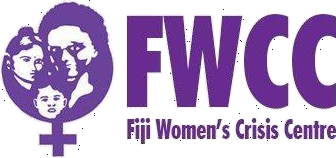Stephen Fisher, an Australian trainer on masculinities at the Chisholm Institute, Melbourne, was speaking at the Fiji Women’s Crisis Centre’s (FWCC) Pacific Regional Meeting on Violence Against Women at the Naviti Resort on the Coral Coast in Fiji.
Fisher said the concept of masculinities was a major factor that reinforced male behaviour normalising demeaning and violent treatment of women.
Many men enjoy maintaining their dominance role in their personal relationships and in and this is expressed through their masculinity, Fisher said.
“For many men masculinity is an identity to be proven to others or defended from challenge,” Fisher said.
Objectification of women, treating them as goods by men, is also at the core of gender-based violence.
“Too often men treat women as objects to sexually conquer,” said Fisher.
Fisher challenged men to abrogate their desire for control and instead embrace “pro-feminist” in supporting women to eliminate gender-based violence.
Pro-feminism, he said, involves listening to women’s experiences and being informed by feminist analysis of issues that affect women.
The pro-feminist perspective also recognises that men as a group actually benefit from women’s domination. And even the gentlest of men enjoy privileges that stem from women’s oppression.
Another important aspect of pro-feminism, Fisher said, is being “gay-affirmative” and rejecting discrimination homosexuals, as gay-hating is very close to woman-hating. “Some men fear homosexuality because it implies the possibility of vulnerability and intimacy between men, which challenges the
competitive code and results in superficiality between men,” said Fisher.
“Many men may experience the traumatic psychological challenge of feeling attraction to other men and believe such feelings must bedenied,” Fisher says. Being gay is often “hated” as it is perceived as being “feminine”.
Men also preferred each others’ company than being with women, a phenomenon referred to as “homosociobility.”
“Men bond in opposition to women. Yet bonding is also often at the expense of women. Challenging sexism means challenging homosociobility.”
Also, men strongly desire an identity as “provider, protector and procreator”, ideas which are centred on men’s “honour” and control over women, says Fisher.
Men believe it is their role as “provider” to be the main breadwinner,
implying that girls do not need an education because women do not need
to go out to work.
As “protectors” men feel it is their job to protect women and children, a concept closely linked with the control of women. Women are not expected to leave the house, do rough or “manly” work, or
become leaders.
In their “procreator” role, men are expected to have children as a sign of their virility and an affirmation of their heterosexuality.
“The man who is able to satisfy and control a woman from going to other men is considered masculine,” says Fisher. There is also the idea that a “powerful man must have an obedient wife and a household
that caters to his needs.”
Fisher criticised certain approaches to addressing violence against women that attempted to tackle the issue without addressing the underlying power and control attitudes in men.
“Conflict resolution, mediation and counselling approaches all leave power unchallenged and benefit men,” says Fisher.
Some sixty women and men attended the Fifth Pacific Meeting on Violence Against Women which ends today (June 12). The week-long meeting of members of the Pacific Women’s Network Against Violence. Women focused on drawing up prevention strategies that those working in the field could use to eliminate gender-based violence.
